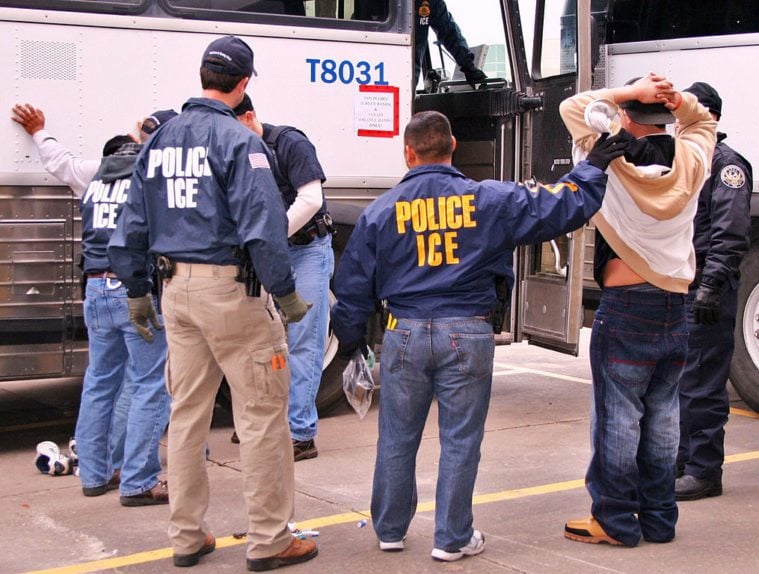
13 Texas Counties Seek Authority from Trump to Enforce Immigration Law
The law enforcement agencies, mostly in rural South Texas and along the coast, have applied to enroll in the 287(g) agreement.

At least 13 law enforcement agencies in Texas have applied to collaborate with federal immigration authorities through a controversial program, according to a document obtained by the Observer.
If approved, the number of Texas law enforcement agencies enrolled in the 287(g) partnership, which delegates to local police the authority to enforce immigration law, would increase more than fivefold.
Currently, only three Texas agencies participate in 287(g): the Lubbock and Jackson county sheriff’s departments and the Carrollton Police Department.
All 13 Texas applicants are sheriff’s offices, mostly in rural South Texas and along the coast. Five other law enforcement agencies outside Texas also applied. (Full list below.)
Under the type of 287(g) arrangement sought by the sheriffs, their deputies would be trained by Immigration and Customs Enforcement (ICE) to serve as immigration agents in the jail. Under the program, deputies could question people in detention about their immigration status and place immigration detainers on inmates.
In April, the counties’ applications will go before the ICE 287(g) Program Advisory Board for review.

At its peak in 2009, at least 70 local law enforcement agencies around the country were enrolled in 287(g). But many agencies pulled out over criticism that participation spurred racial profiling and cost local taxpayers too much. Harris County left the voluntary program last month, because newly elected Sheriff Ed Gonzalez said the $675,000 price tag was too steep.
But in late January, President Donald Trump signed an executive order that called on local and state police to act as immigration officials and urged a crack-down on “sanctuary jurisdictions.”
In Texas, state police appear to be ramping up their cooperation with immigration enforcement, while legislators are debating a controversial measure to punish local jails that don’t fully cooperate with ICE.
Chris Rickerd, policy counsel for the ACLU’s National Political Advocacy Department, said the Trump administration’s crackdown on immigrants and the expansion of the 287(g) program will only make communities less safe.
“When the public isn’t sure whether police are there to protect or deport them, crimes don’t get reported and domestic violence survivors stay silent rather than calling 911,” Rickerd said. ”Sheriffs should leave federal immigration enforcement to Washington, D.C., rather than divisively subsidizing and enrolling in Trump’s deportation force.”
The following list was provided by the ACLU:
Texas counties:
Aransas County Sheriff’s Office
Brazoria County Sheriff’s Office
Calhoun County Sheriff’s Office
Chambers County Sheriff’s Office
DeWitt County Sheriff’s Office
Galveston County Sheriff’s Office
Goliad County Sheriff’s Office
Lavaca County Sheriff’s Office
Matagorda County Sheriff’s Office
Montgomery County Sheriff’s Office
Refugio County Sheriff’s Office
Walker County Sheriff’s Office
Wharton County Sheriff’s Office
Non-Texas counties:
Clay County Sheriff’s Office— Florida
Fauquier County Sheriff’s Office—Virginia
Horry County Sheriff’s Office—South Carolina
Pasco County Sheriff’s Office—Florida
Knox County Sheriff’s Office—Tennessee


